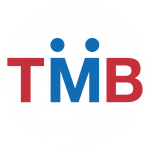When this is the case, you should know to pick the right time to hand things over to a professional or start using EasyBooks app by clicking the button below. For any beginner, bookkeeping can seem overwhelming, but it doesn’t need to be. You’ll start on the right foot by following these easy yet vital bookkeeping practices. For more detailed explanations of the types of bookkeeping we mentioned above, then go ahead and read this blog.
This involves keeping track of all the money that comes in and out of a business. Liabilities are what the company owes like what they owe to their suppliers, bank and business loans, mortgages, and any other net purchases is calculated by taking the cost of new inventory purchases plus freight debt on the books. The liability accounts on a balance sheet include both current and long-term liabilities. Accounts payable are usually what the business owes to its suppliers, credit cards, and bank loans.
- Bookkeepers are responsible for recording, classifying, and organizing every financial transaction that is made through the course of business operations.
- More commonly, entrepreneurs use comprehensive accounting software like QuickBooks that can handle a larger volume of transactions and provide a deeper analysis.
- Bookkeeping lays the groundwork for many accounting processes, so you can use your experience and knowledge as a stepping stone to becoming an accountant.
- The primary task of a bookkeeper is to keep a track of the financial transactions of a business and generate relevant and accurate reports.
- Alternatively, a learner with a business background could have a more difficult time understanding the mathematical aspects of bookkeeping.
- As mentioned above, a professional bookkeeper should be detail-oriented, enjoy working with data, be comfortable with routine procedures, and be comfortable with numbers.
Integrity and trustworthiness are important qualities to cultivate as a bookkeeper. Keep an organization’s financial data confidential and be transparent about your bookkeeping activities. Managing the general ledger is part of your daily responsibilities https://www.online-accounting.net/capital-expenditure/ as a bookkeeper. You may determine if any payments are due, submit them, and record them in the financial ledger. As a bookkeeper, you may also receive client payments and deposit them at your company’s financial institution.
The financial transactions are all recorded, but they have to be summarized at the end of specific time periods. Other smaller firms may require reports only at the end of the year in preparation for doing taxes. All you need to do is complete the accounting fundamentals course and pass the bookkeeping certification exam. A bookkeeping course can teach you the basic knowledge you’ll need to prepare financial reports, organize data using tools like Microsoft Excel, or understand how to balance books.
Check for errors in reports.
Further, they need to meet the requirements of filing tax returns and financial statements with their local revenue authorities. Bookkeepers manage a company’s financial accounts, ensuring they are accurate and easy to review. Their work plays an important role in the operation of a successful business, which can have very many transactions in a single day, let alone a week, month, fiscal quarter, or year. For example, a bachelor’s degree in business can be tailored to many different professions.
A few employers offer on-the-job training for bookkeepers by providing internships and placement programs. According to the US Bureau of Labor Statistics (BLS), most bookkeepers can learn the profession’s basics in about six months [3]. Once you become a qualified bookkeeper, you can work as a permanent employee or freelancer. Financial institutions, investors, and the government need accurate bookkeeping accounting to make better lending and investing decisions. Bookkeeping accuracy and reliability are essential for businesses to succeed for staff, executives, customers, and partners. If your company is larger and more complex, you need to set up a double-entry bookkeeping system.
Various Bachelor’s in Accounting Degrees
Whether you are already in the bookkeeping field or just starting out, this guide can help you determine your next steps. Most remote QuickBooks Live bookkeepers work from home which means you need a reliable hard-wired internet connection and a landline phone. Intuit will provide a laptop with all the technology and software required to meet your responsibilities. Intuit will also provide a webcam, headset, USB hub, Ethernet cable, backdrop, and VPN token. Some provide free and low-cost resources, while others may be more expensive but provide more knowledge.
This includes creating invoices, categorising expenses, setting up charts of accounts, and much more. QuickBooks also provides a webinar held by expert QBO accountant Hector Garcia. In this webinar, the QBO accountant covers how to set up QuickBooks Online and provides guidelines on some of the useful features of the product. Once you have attended the QuickBooks training class, worked through the study guide, and taken the practice exam, you will be ready for the exam.
Bookkeepers can advance their skills, knowledge, and marketability via the self-study professional education offered by AIPB to both members and non-members. Bookkeepers are integral to ensuring that businesses keep their finances organized. If you’re considering a career as a bookkeeper, then you might consider taking a cost-effective, flexible course through Coursera. If you’re organized and enjoy working with numbers, a job as a bookkeeper could be a good fit. For the past 52 years, Harold Averkamp (CPA, MBA) has worked as an accounting supervisor, manager, consultant, university instructor, and innovator in teaching accounting online.
There are plenty of additional terms and phrases that will help you get started. You’ll benefit from bookmarking this glossary which is full of bookkeeping terms (no confusing jargon though) that we’ll regularly update. What’s it like to work as a Front Office Expert or Back Office Expert for QuickBooks Live? Watch the videos to find out what a day in the life is like for our Intuit bookkeeping experts. To become a Certified Public Bookkeeper (CPB) from the NACPB, you must complete the Accounting Fundamentals course and pass the Uniform Bookkeeping Certification exam.
Bookkeeping basics: A guide for small businesses
To get started, you don’t need to search for the cheapest bookkeeper around, even if you’re a complete newbie. You work hard for your money so the last thing you want is giving a big chunk to the taxman and then another hefty slice to a bookkeeper for tasks you can do by yourself. From balance sheets to income statements, there’s no denying that there are new terms and phrases you’ll come across. In practice, they’re quite easy to understand once the terms are broken down into much simpler definitions. Now that you understand how to become a bookkeeper, you are ready to get started on your new path.
Both the CPB and CB certifications require similar eligibility requirements. Every business step requires capital, from transforming an idea into a model to investing in its expansion. As a professional bookkeeper, you would keep track of a company’s financial transactions and record them in the general ledger accounts. Double-entry bookkeeping records all transactions twice, usually a debit and a credit entry. Typically, double-entry bookkeeping uses accrual accounting for liabilities, equities, assets, expenses and revenue.
These courses are taught by professional Wallstreet trainers who have been teaching for over twenty years. When you start your first subscription to Coursera, it will start a seven-day free trial. However, on the eighth day, your free trial automatically becomes a paid subscription, unless you cancel the free trial version. The paid courses offer quizzes and projects, and a course certificate upon completion.





















